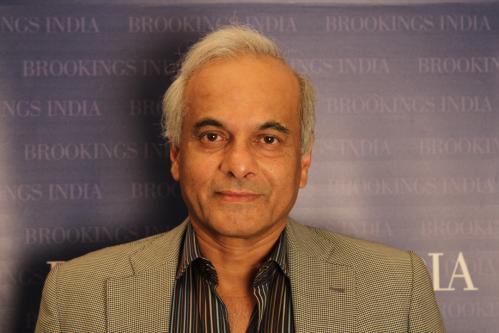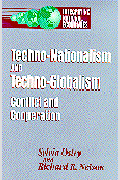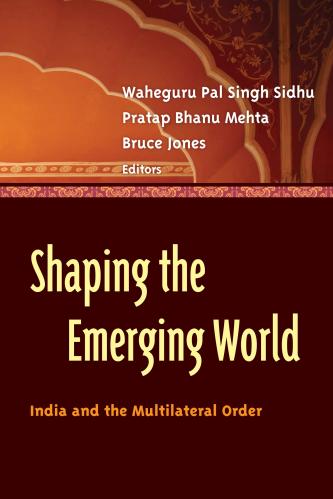This op-ed was originally published by Project Syndicate.
In my book “The Republic of Beliefs: A New Approach to Law and Economics,” I was eager to demonstrate how the methods that have emerged from the long and fruitful dialogue between these fields could, with a little help from game theory, be applied to multilateral disputes and multi-jurisdictional conflicts. So, I included a section on the challenge of creating a global constitution. This is an idea with quite a long history.
In the fourteenth century, for example, Italy’s semi-autonomous city-states developed the “statutist doctrine” for resolving the problems that arose with trade and commerce across multiple legal jurisdictions. As Stephen Breyer, an associate justice of the US Supreme Court, suggests, in the absence of institutional dispute-resolution mechanisms, a case brought against a Florentine native by a native of Rome could have pulled both states into war.
Or, consider the Dutch East India Company’s seizure of a Portuguese merchant vessel, the Santa Catarina, in the Strait of Singapore in 1603. That episode gave rise to such fraught multi-jurisdictional questions that the Dutch jurist Huig de Groot (Grotius) had to be brought in to mediate, leading to one of the earliest attempts to codify international law.
Despite this long history, attempts at establishing international law have met with only limited success. Creating a system that is sensitive to the well-being of all individuals—what the University of Chicago’s Eric Posner calls the “welfarist approach”—quickly runs into the problem of nation-state sovereignty. As the sole enforcer of the law and guarantor of citizens’ rights within its jurisdiction, the nation-state has the prerogative to ignore or overrule laws or rights recognized by third parties.
Still, we cannot simply wait around for academic debates on such matters to reach a conclusion. The world is mired in disputes that cut across jurisdictions, not least the United Kingdom’s Brexit debacle. How will the flow of goods and people between the European Union and Britain, and between Northern Ireland and the Republic of Ireland, be managed? Neither British Prime Minister Theresa May nor anyone else has a decisive answer. The outcome of Brexit remains uncertain, even as the likelihood of May’s own exit becomes a foregone conclusion.
Meanwhile, in another domain, there is a growing realization that current antitrust laws may be insufficient for managing the issues raised by the digital economy. Though the United States is home to 12 of the world’s 20 largest tech companies, it has failed to curb their worst practices. In the absence of an international framework, national and regional governments such as the European Union have begun to pursue unilateral regulatory action, at the risk of stoking tensions with U.S. President Donald Trump’s dithering administration.
Likewise, from the Mediterranean Sea to the U.S.-Mexico border, the flow of people with different customs and beliefs, from countries with different legal frameworks, is stretching existing immigration systems to the limit. Some of these differences can be comical. A pest-control technician treating my house in Delhi, India, once assured me that my home would be termite-free because he was using strong chemicals, and added, for further reassurance, “Ones that are totally banned in the U.S.” But there are also more serious conflicts of beliefs and customs, not least those involving clashes of religions. Unabated sectarian conflict in an age of sophisticated weapons and cyber warfare could be catastrophic.
While the details of international law will continue to be debated indefinitely, we can—and urgently must—adopt a global constitution in the here and now. At a minimum, such a compact would outline basic rules of behavior that all can agree to follow, and authorize enforcement by a third party that is actually empowered to carry this out.
We often appeal to individual morality and basic human decency when trying to resolve political and cultural conflicts. The assumption is that if everyone would just respect everyone else’s right to practice their own religion, many of our problems would disappear. In fact, such conflicts are often intractable, for there are some customs and practices that are fundamentally incompatible with one another.
Imagine two societies. In one, the dominant religion requires everyone to drive on the left; in the other, everyone must drive on the right. Were they forever to exist on separate islands, there would be peace. But with globalization and the movement of people between the two islands, the seeds of conflict will have been sown.
Societies can either perpetuate such conflict through war and domination, or they can agree to a common code. Some parties may need to be compensated for their sacrifices; or each party may need to offer concessions on some issues in exchange for favorable terms on others. That is the point of negotiation and compromise, for which there is no alternative other than enduring conflict.
Compromise is rarely easy, especially where interest and identity overlap. But given the extent to which globalization has already progressed, we cannot simply stay in our lane and hope for the best. The U.S., long a leader in establishing global norms, is retreating behind a psychological wall. We will need ordinary citizens, members of civil society, and, indeed, religious leaders to recognize the need for global collaboration and demand that policymakers take the initiative.
The Brookings Institution is committed to quality, independence, and impact.
We are supported by a diverse array of funders. In line with our values and policies, each Brookings publication represents the sole views of its author(s).









Commentary
Op-edThe case for a global constitution
April 22, 2019